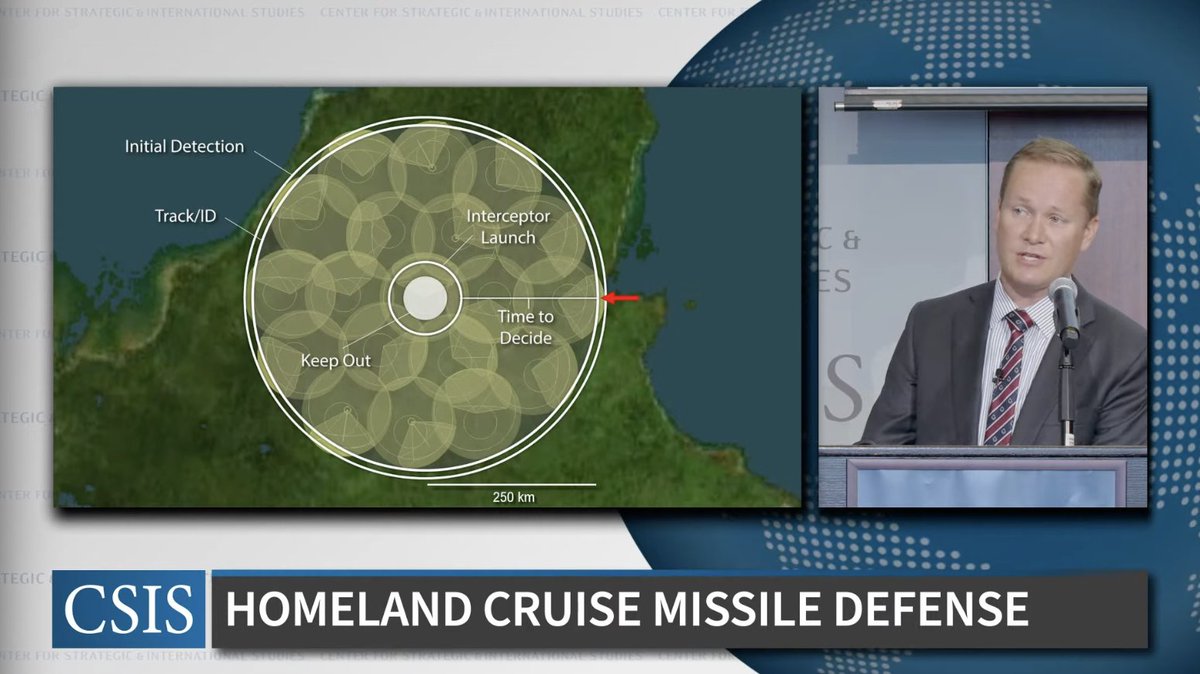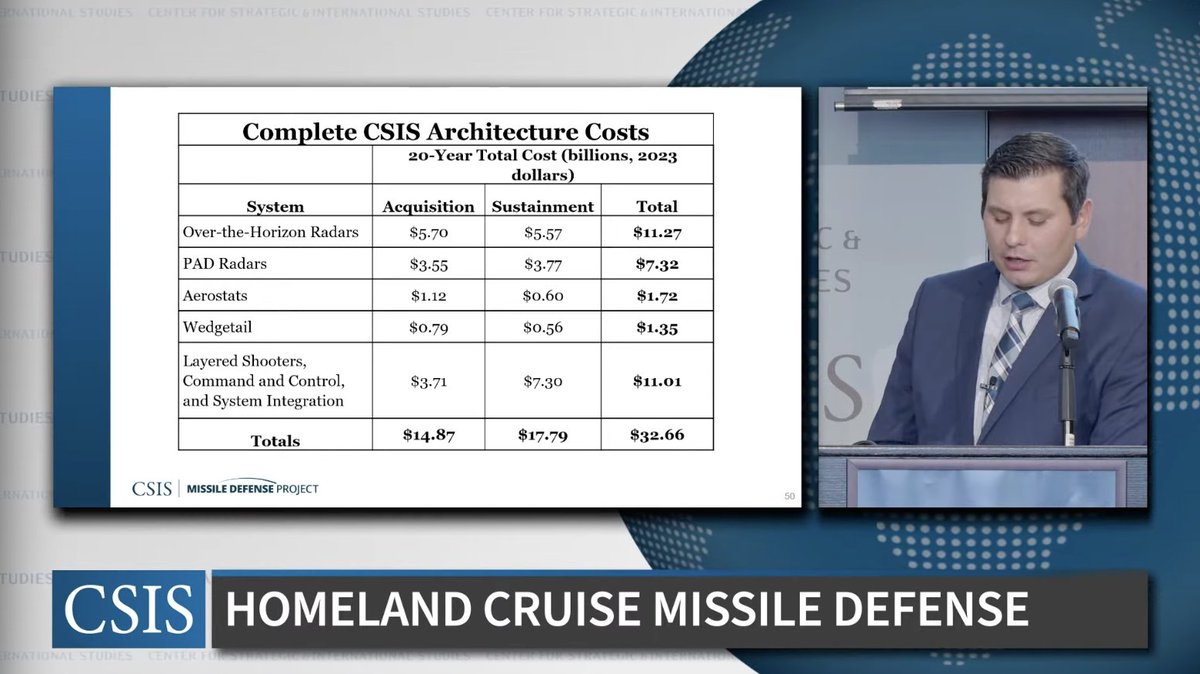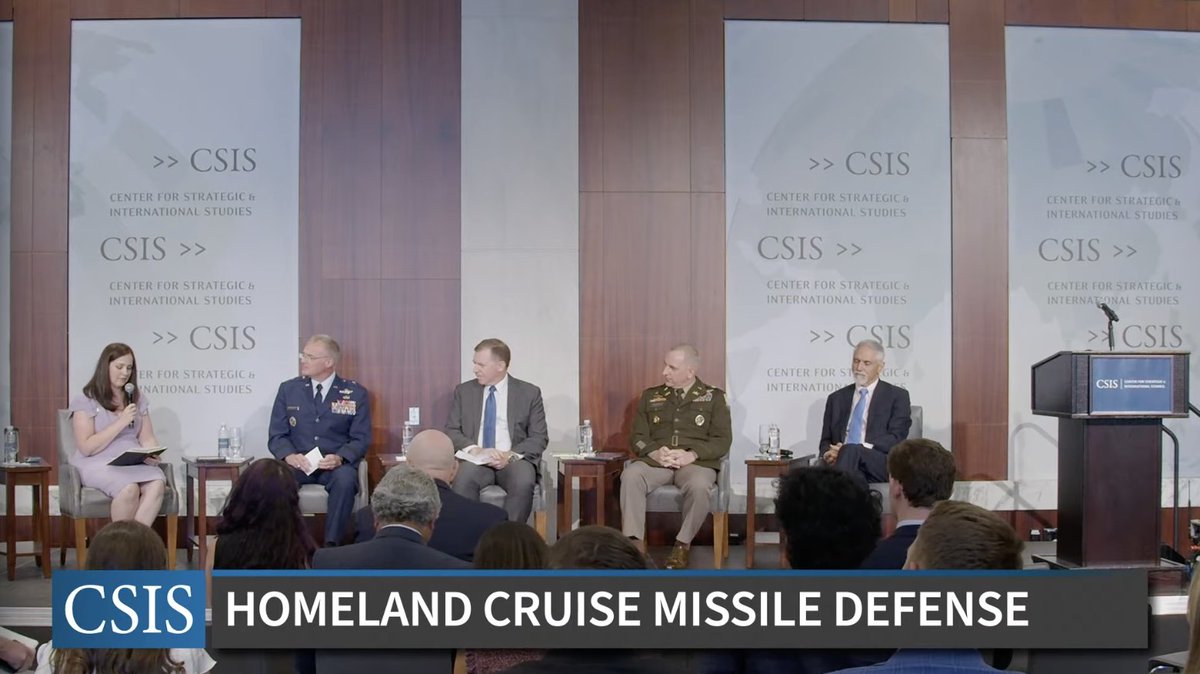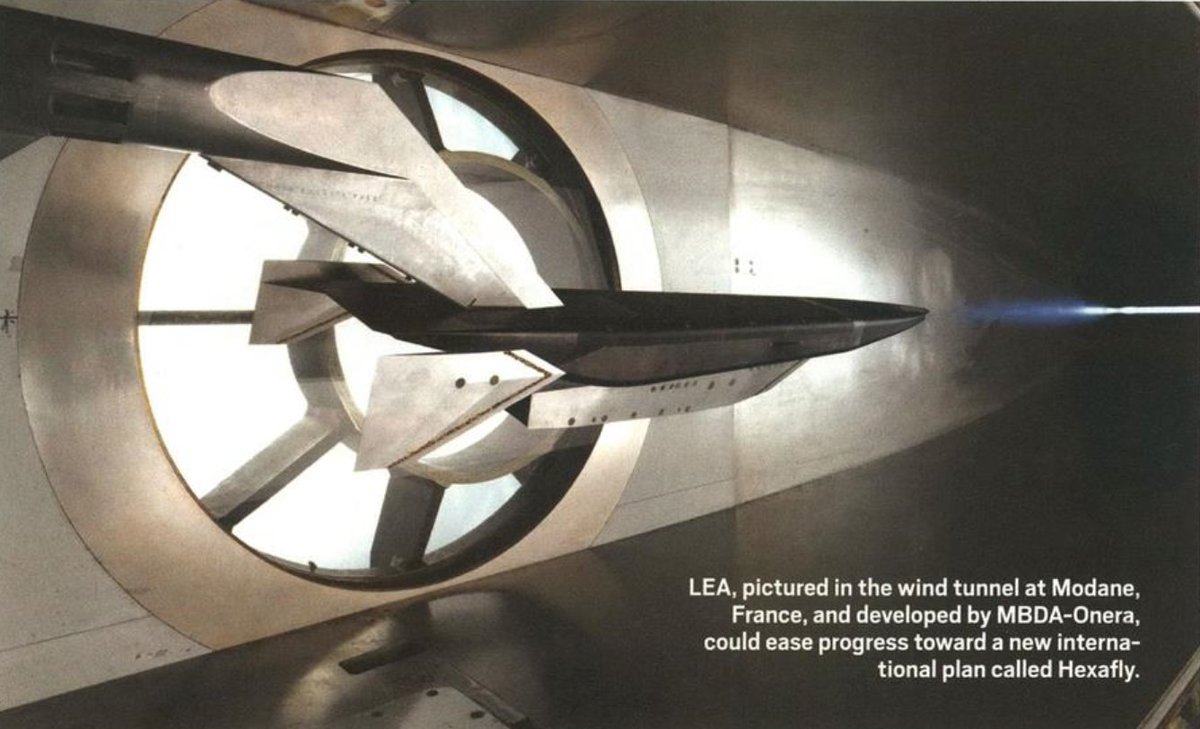STARTING NOW: Our panel event on homeland cruise missile defense. Follow our live THREAD on the event here and ask questions:
https://twitter.com/CSIS/status/1547600682286325761
LTG A.C. Roper, Deputy Commander of NORTHCOM introduces our panel with @LeeHudson_. "We must deal with compressed decision space." Threat "highlights our limited domain awareness" 

Roper: "nuclear deterrence is the foundation of homeland defense." But need for "credible deterrence options between the nuclear threshold" including denial (defense) and punishment (offense) options.
Dr. Tom Karako opens with the big picture. Is cruise missile defense as important as BMD? Non-nuclear strategic attack is an emerging threat, left unaddressed. 
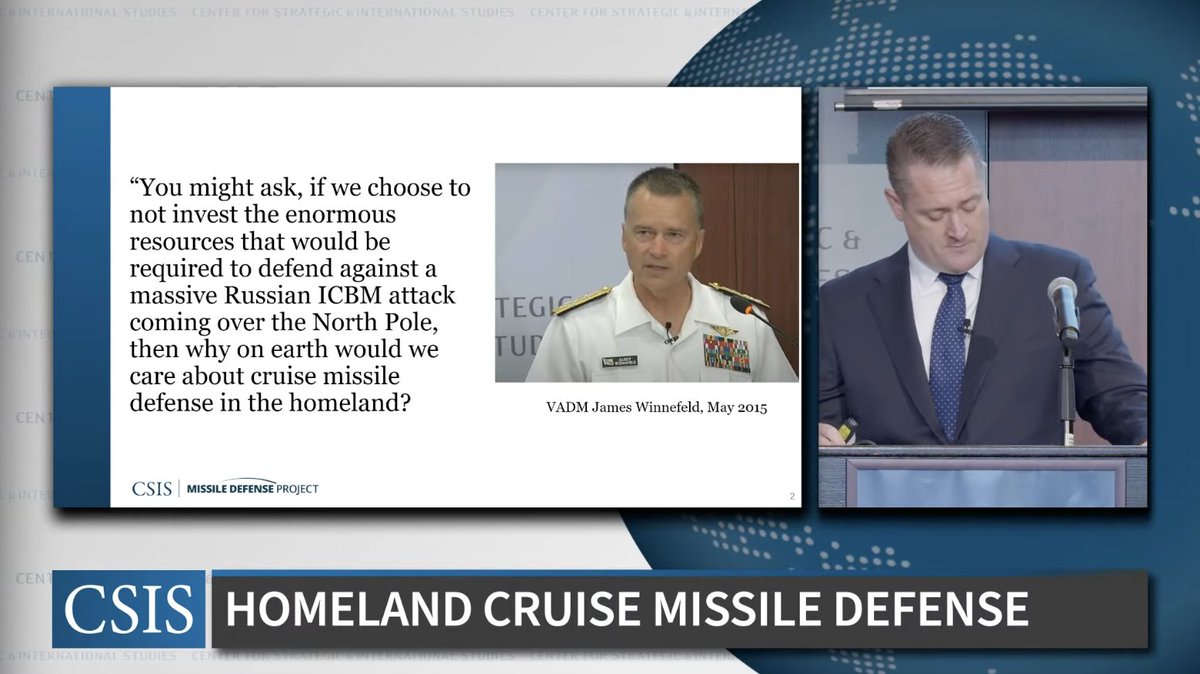
Lack of cruise missile defense is a major vulnerability: adversaries might feel tempted to use cruise missile strikes under nuclear threshold for coercion. Deterrence by denial—shooting down the missile—is critical to mission. 

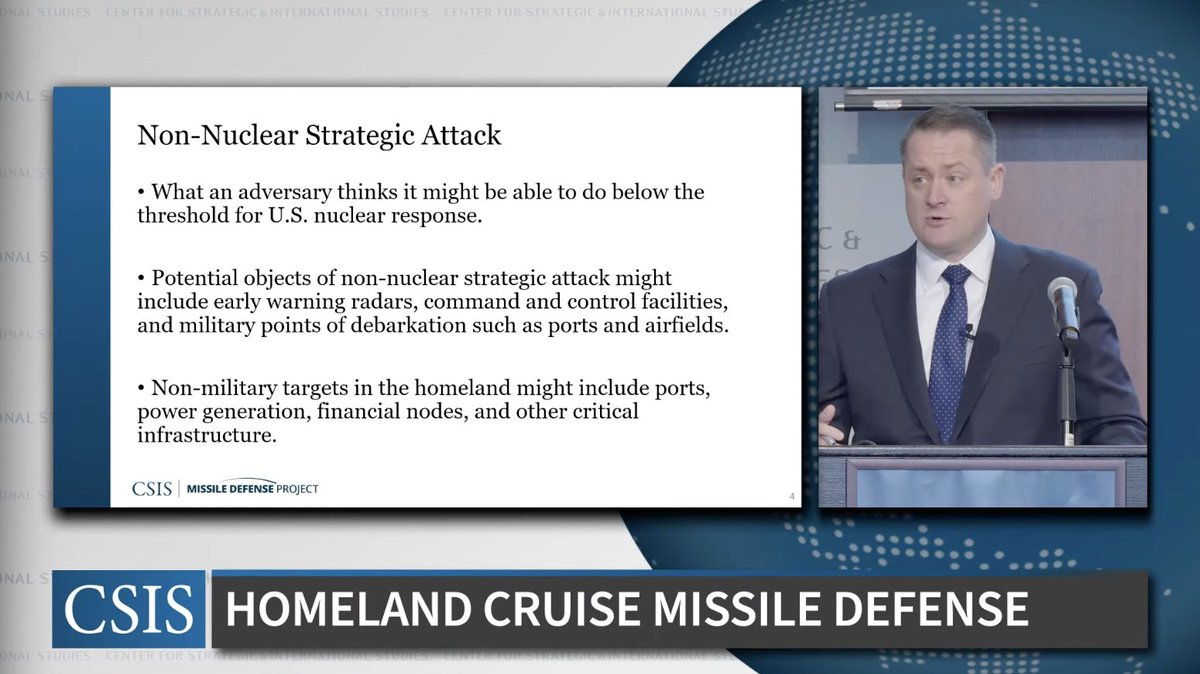
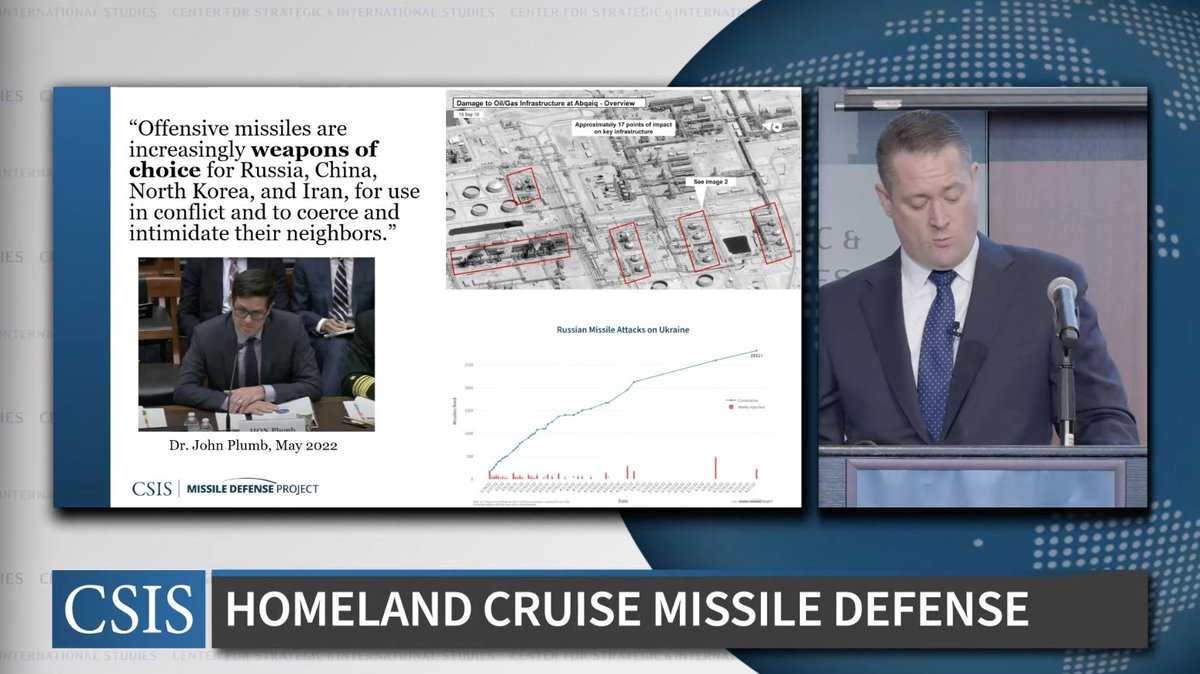
Karako touches briefly on CBO report coming out earlier on cruise missile defense. But some assumptions might be revisited: basing cost estimates on fighter-based architecture, and covering CONUS. 
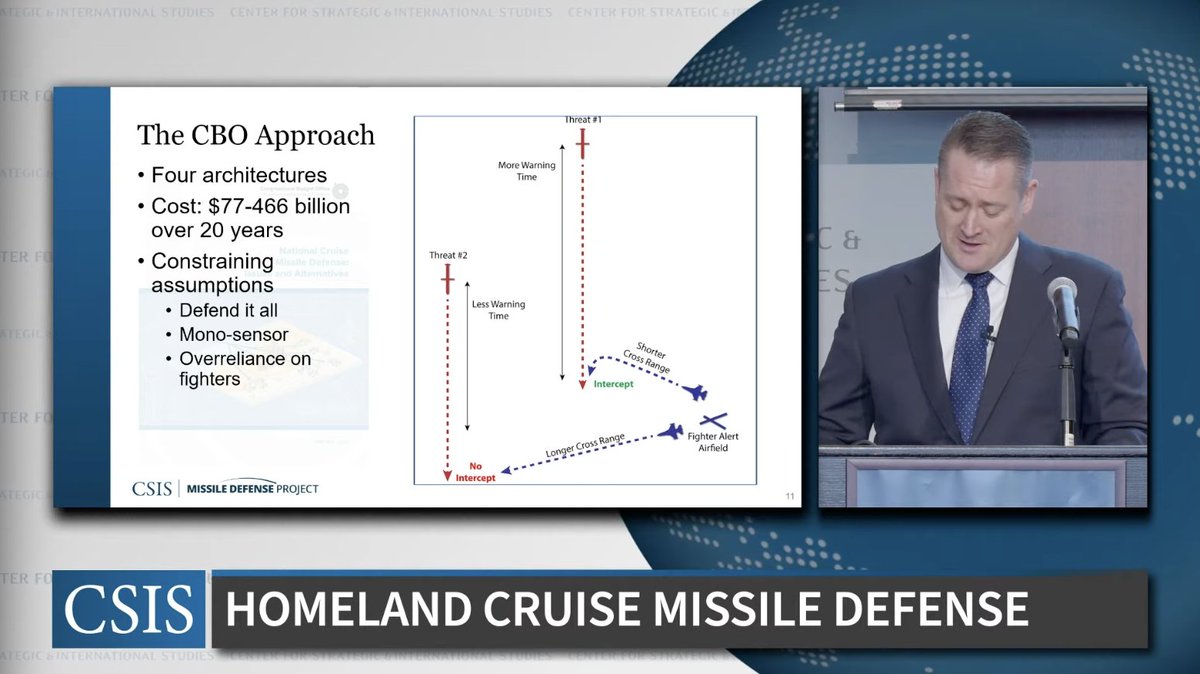
Fun slide from the presentation. Theater defense of Guam will be a laboratory for cruise missile defense of homeland. 

Col. Matthew "Nomad" Strohmeyer previews the layers of a cruise missile defense.
Layer 1: Global threat awareness: the furthest left. Identify preparations for attack. Build on NORTHCOM GIDE, where you observe changes in patterns of life.
Layer 1: Global threat awareness: the furthest left. Identify preparations for attack. Build on NORTHCOM GIDE, where you observe changes in patterns of life.
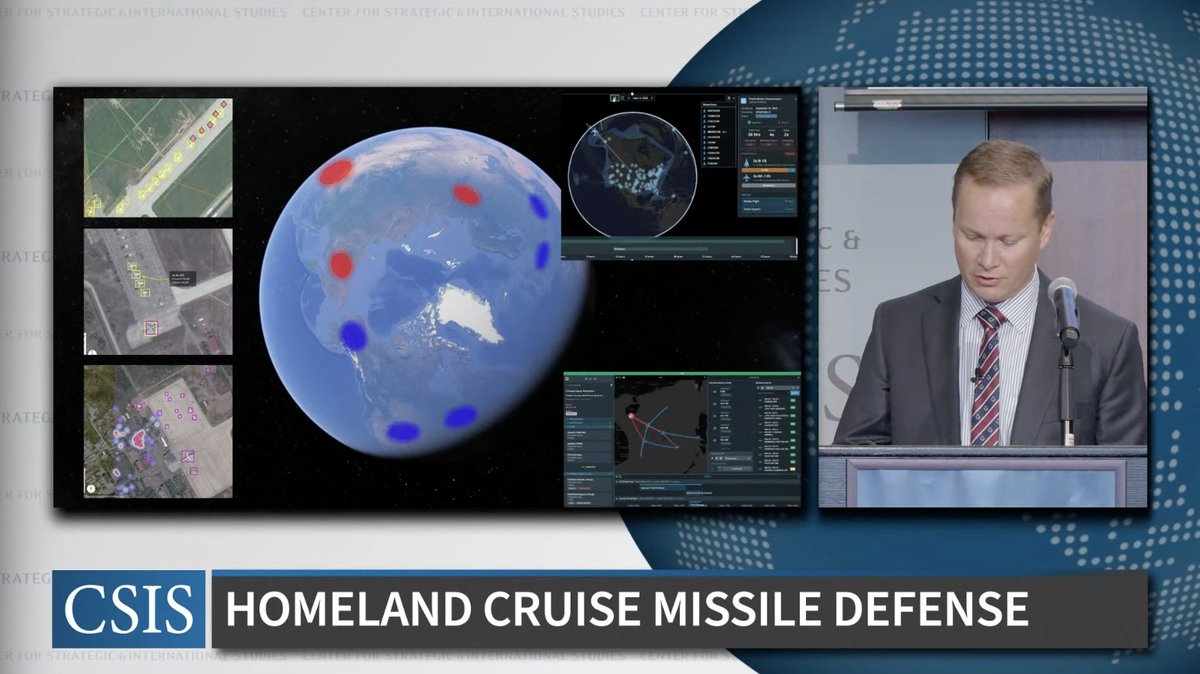
Layer 2: a 21st century DEW line. Leverage over-the-horizon radar investments and advancements for 360 degree coverage. Points to Australian development of DEW coverage with high fidelity. 
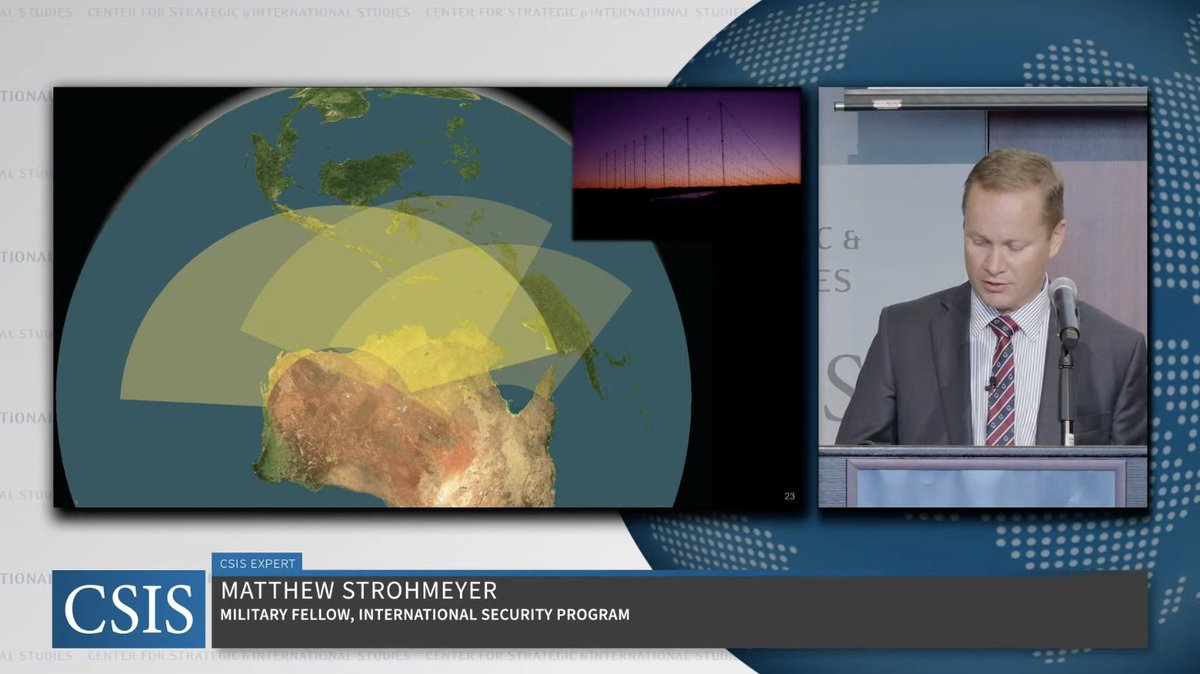
Layer 3: Wide-area surveillance layer. This will require integrating non-DoD sensors, like NOAA, FAA, and Homeland Security radars with new filters and fusion algorithms to wring out more capability. 



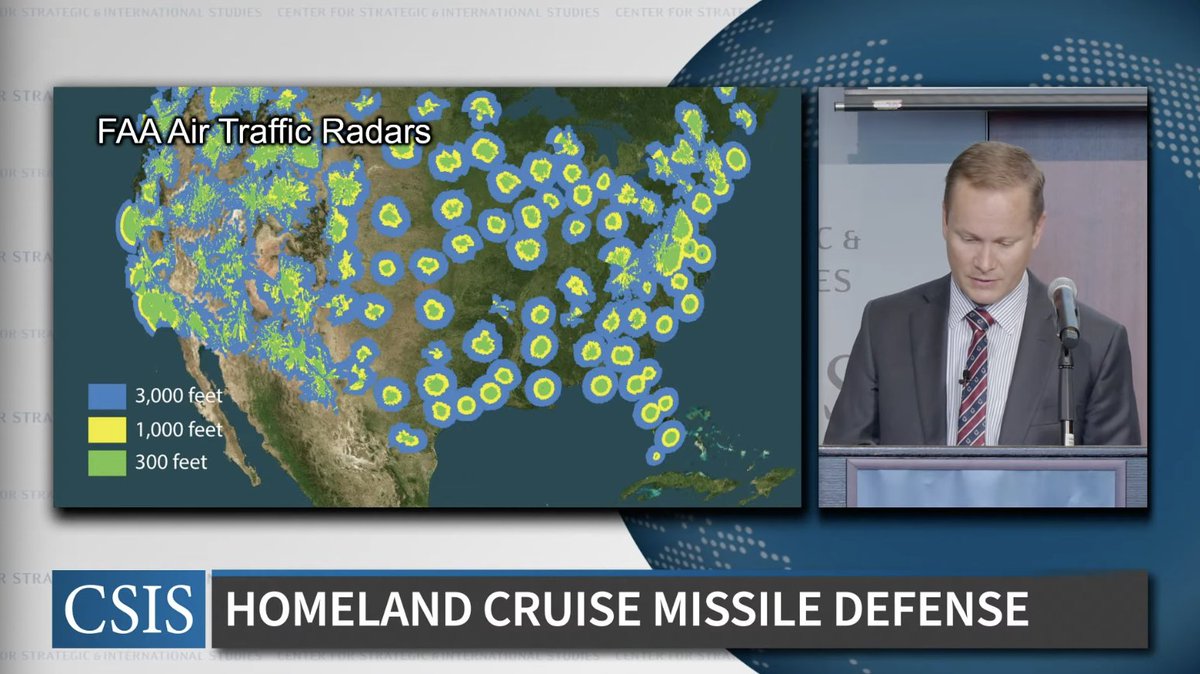
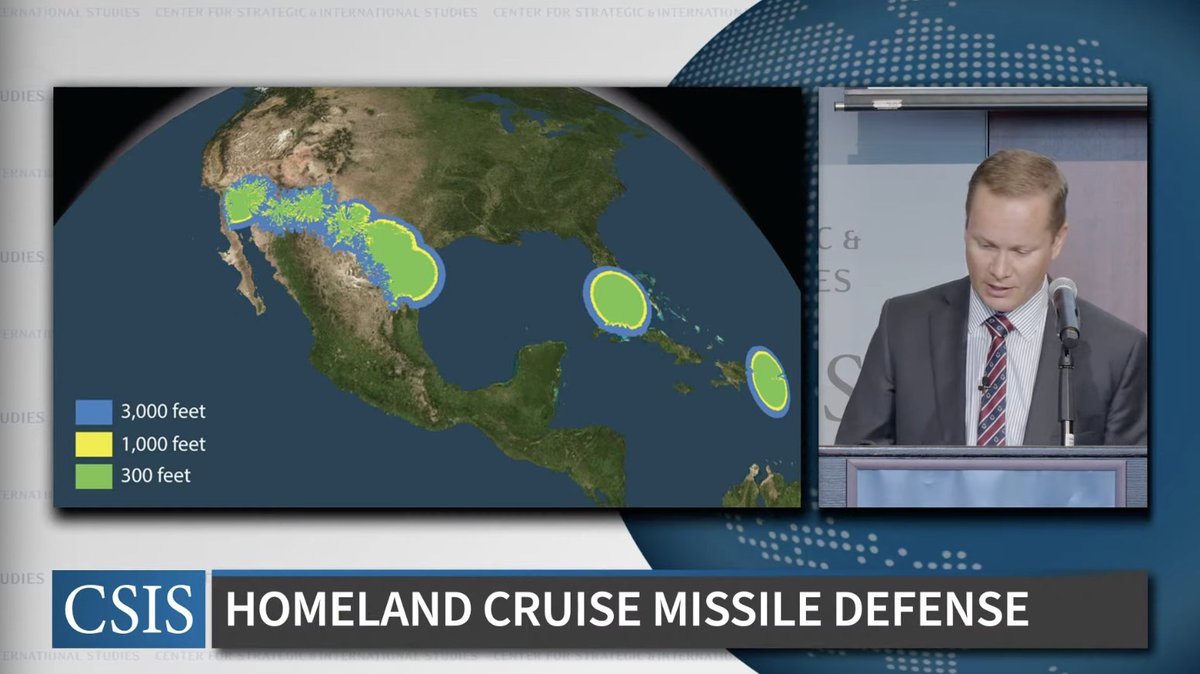
Layer 4: Prioritized Area Defense (PAD). Notes challenge of low-flying targets; 40 km for low-flying target with surface radar. Concept of using some tow 

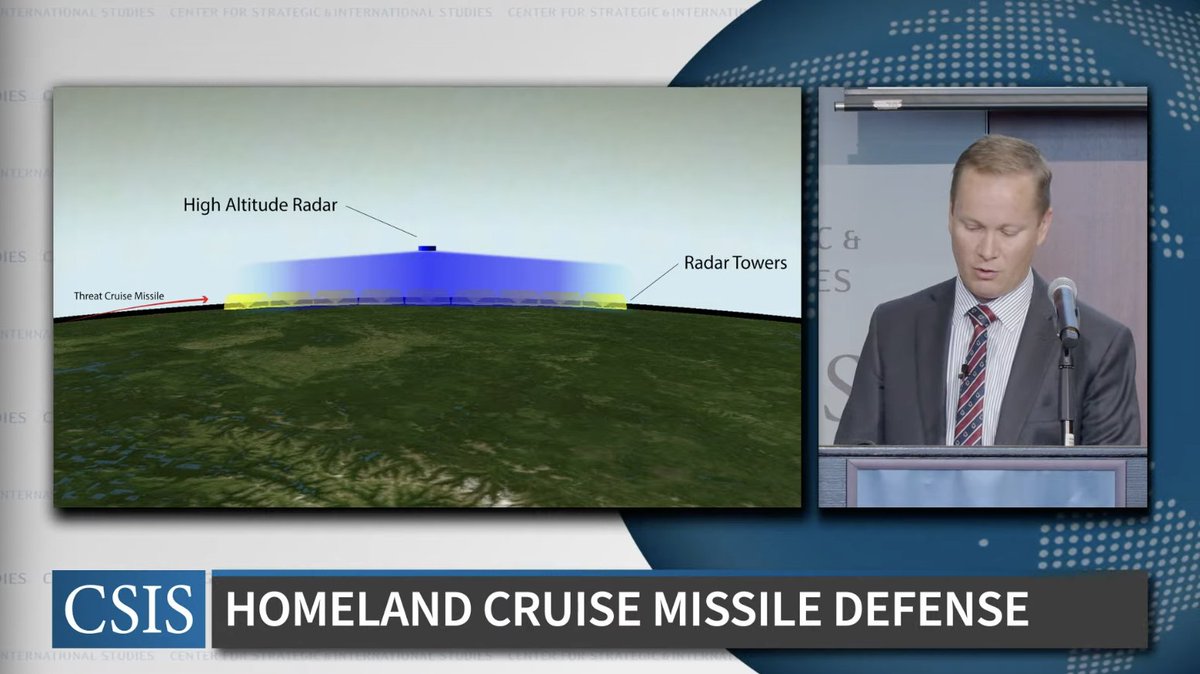

Layer 5: Risk-based mobile defenses. Movable defense to add uncertainty or bulk up specific threatened areas. The complete architecture laydown. 

Strohmeyer: higher-end PAD plus model, with higher-end capability, could also be deployed or created with increased threat levels. 
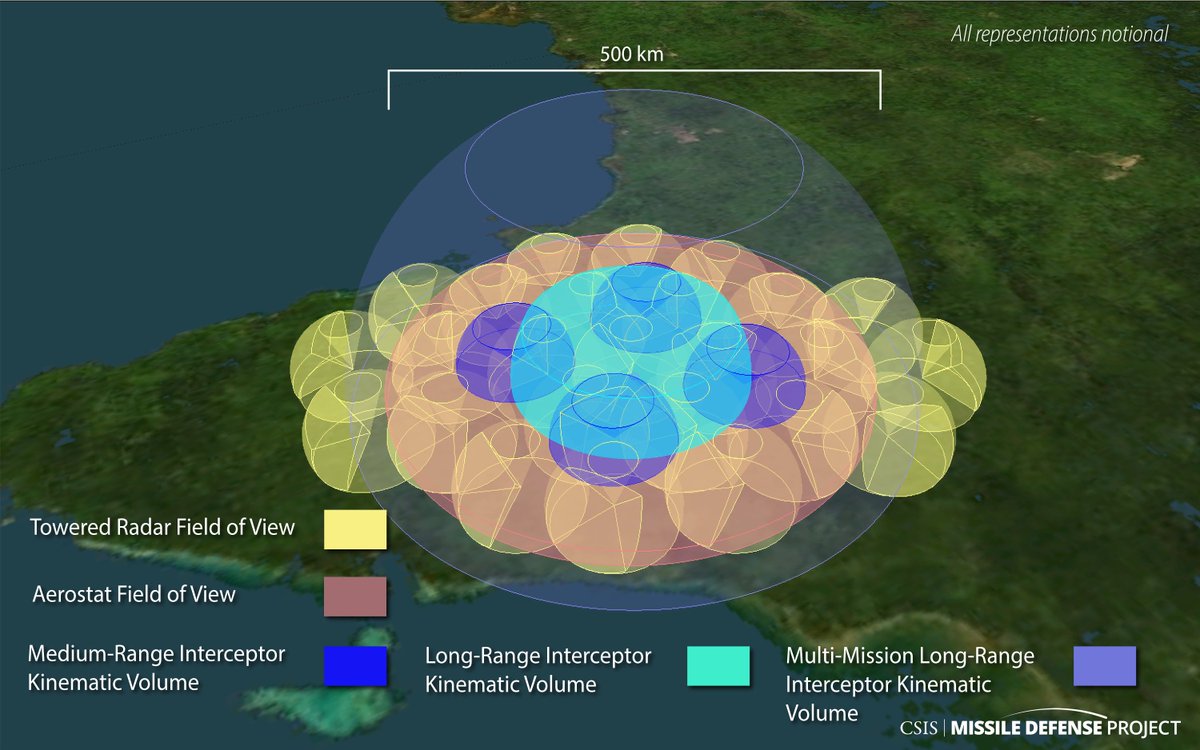
CSIS Associate Fellow @wesrumbaugh on cost estimation: "Now is the time we eat our vegetables." For cruise missile defense, new things won't need development, it's about procuring things at good price. But a more realistic defense design would have lower cost than CBO est. 

@wesrumbaugh CSIS report breaks down costs by year, compared to CBO's undifferentiated 20-year cost. Graph shows spread of acquisition and sustainment costs over 20-year cycle. 
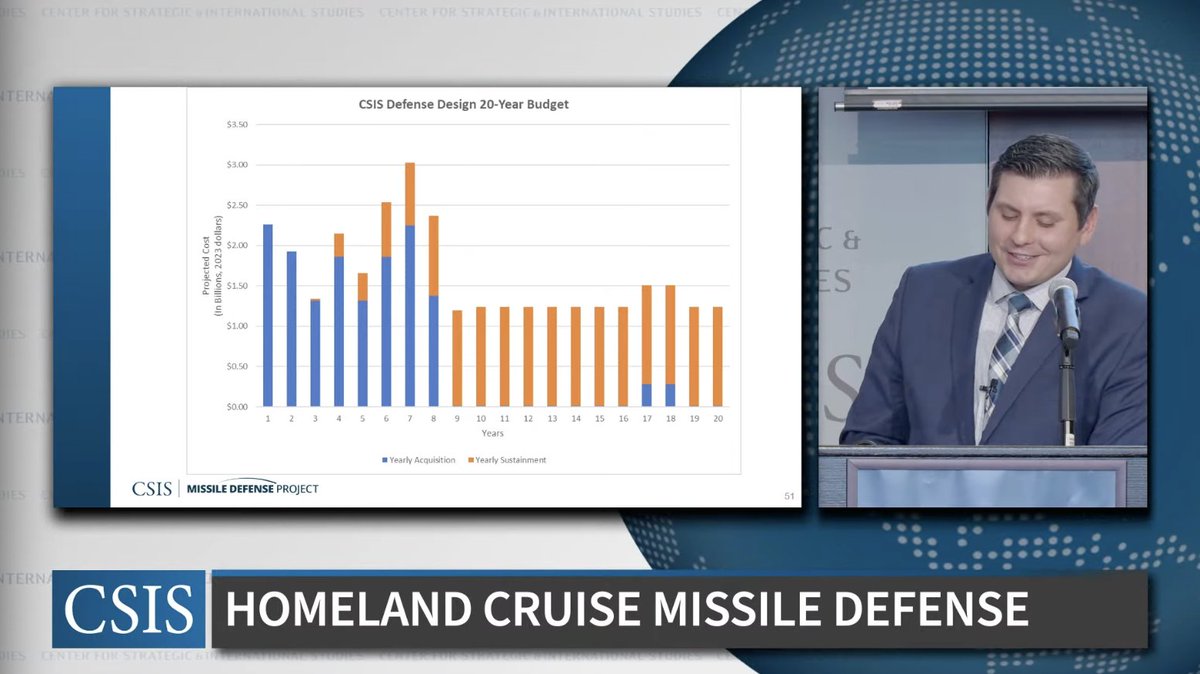
On to the panel discussion with @LeeHudson_. Karako emphasizes that capabilities could be "less exotic." CBO low end was $77B, CSIS $33B. Mostly because we're not assuming all-CONUS coverage, and less reliance on aircraft for sensing and interception. 
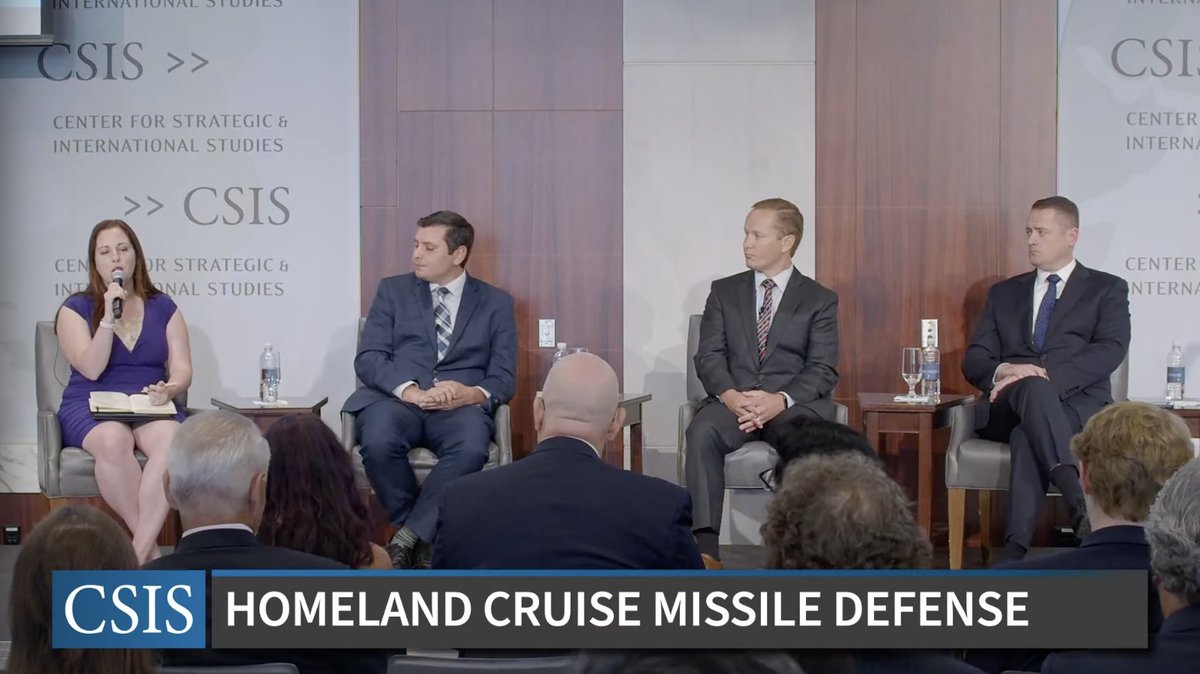
Hudson: What does Ukraine teach us about CMD?
Karako: Ukraine shows how Russia and others prefer using conventional cruise missiles for non-nuclear strategic attack. "These are garden-variety, subsonic cruise missiles, and that is where the threat is today."
Karako: Ukraine shows how Russia and others prefer using conventional cruise missiles for non-nuclear strategic attack. "These are garden-variety, subsonic cruise missiles, and that is where the threat is today."
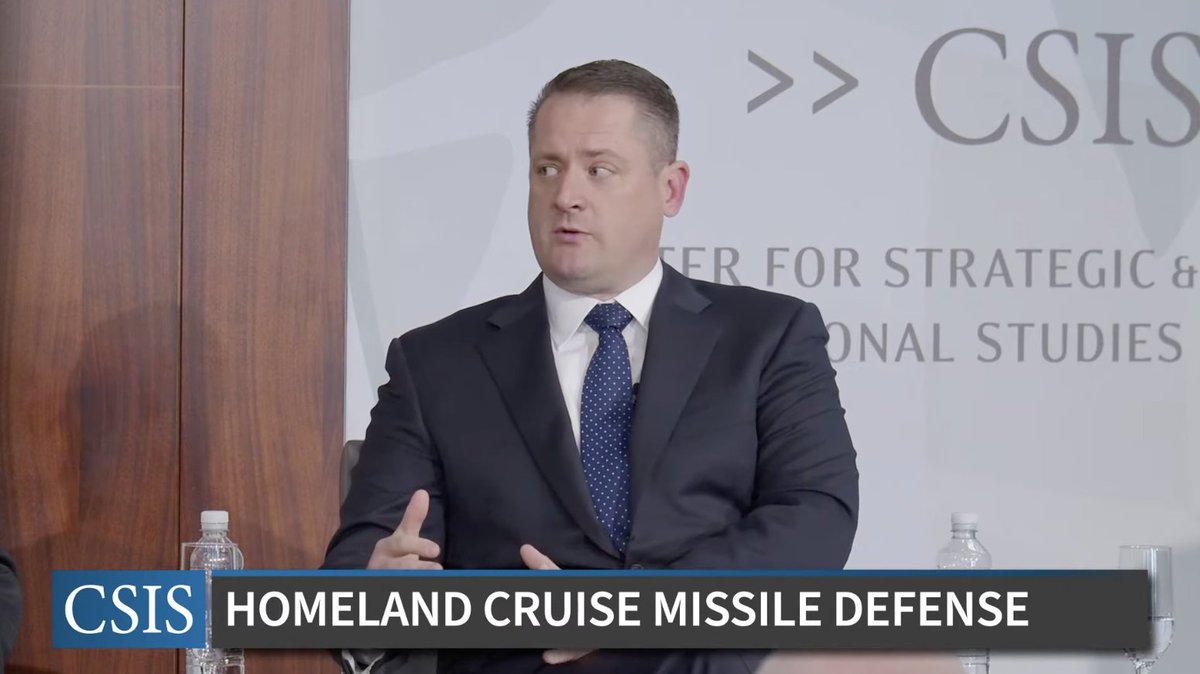
@wesrumbaugh: "these are not whiz-bang investments...it's about changing numbers on the order sheet" on existing systems, instead of inventing new ones. Cruise missiles are a mature threat, we just need to create a defense design. 
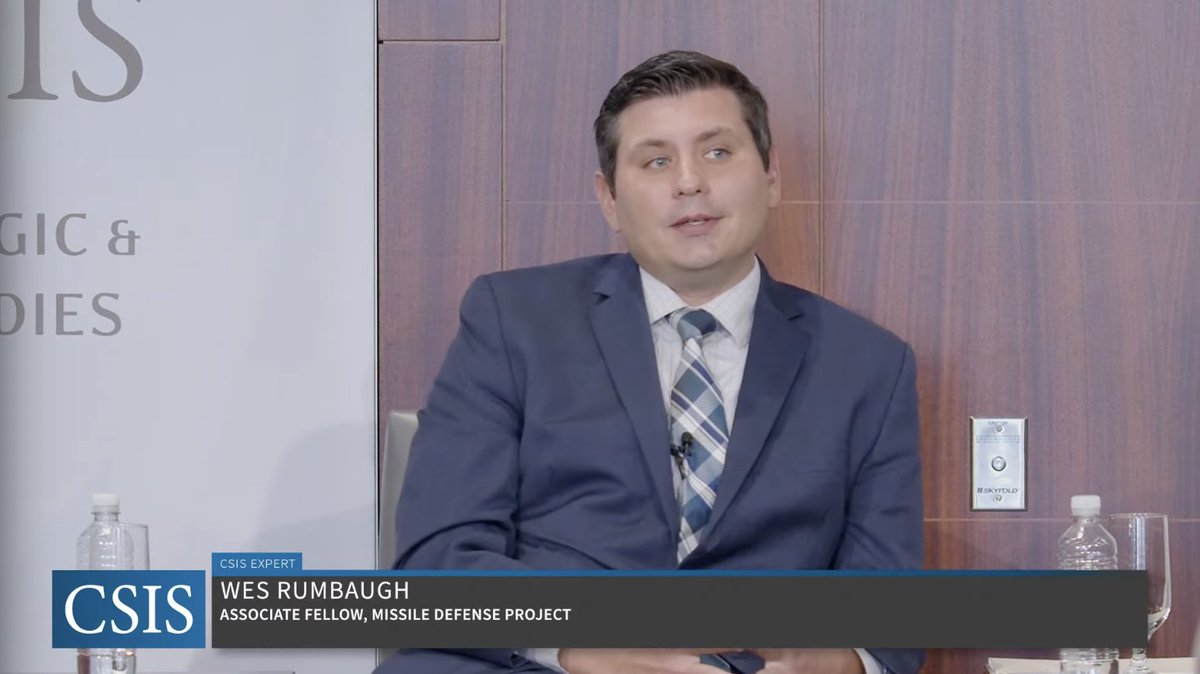
@LeeHudson_: what are the steps to integrate FAA, other assets for domain awareness?
Strohmeyer: interagency already sits down together to cooperate on many missions. But we need to look at ways to fuse sensor data better.
Strohmeyer: interagency already sits down together to cooperate on many missions. But we need to look at ways to fuse sensor data better.

@tomkarako closes with a note: We can't think about missile threats individually. The general theme: all missile threats are lower, faster, more maneuverable. Cruise missiles are one exemplar, hypersonic weapons are another. This is fundamentally an air defense problem.
STAY TUNED for a second panel at 1:00EDT, feat. @JenJudson (@defense_news), Dr. Peppi DeBiaso (Snr. Associate, CSIS, fmr. Director, DoD OMDP), COL Tony Behrens (Deputy Dir., JIAMDO), Stan Stafira (MDA Chief Architect), and BG Paul J. Murray (Deputy Dir., Operations, NORAD).
• • •
Missing some Tweet in this thread? You can try to
force a refresh


